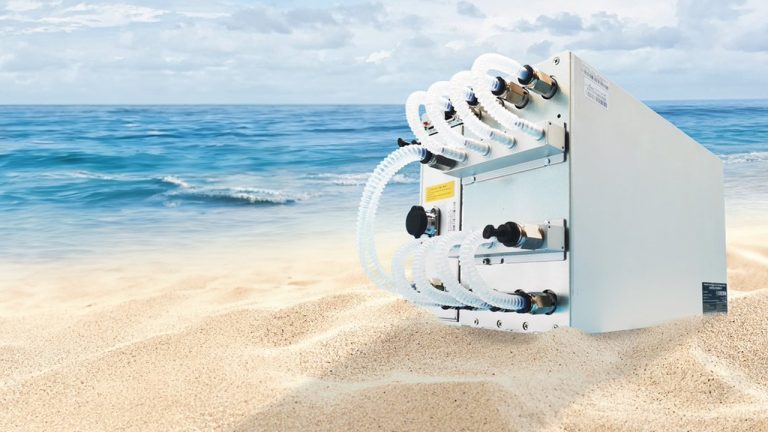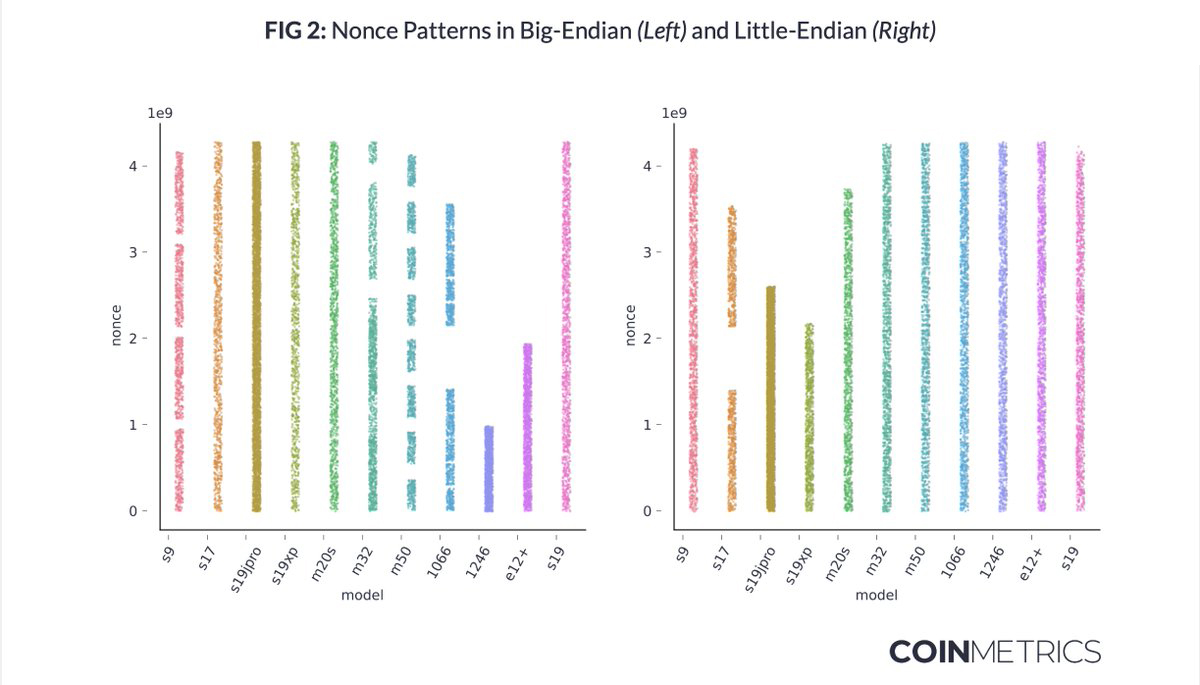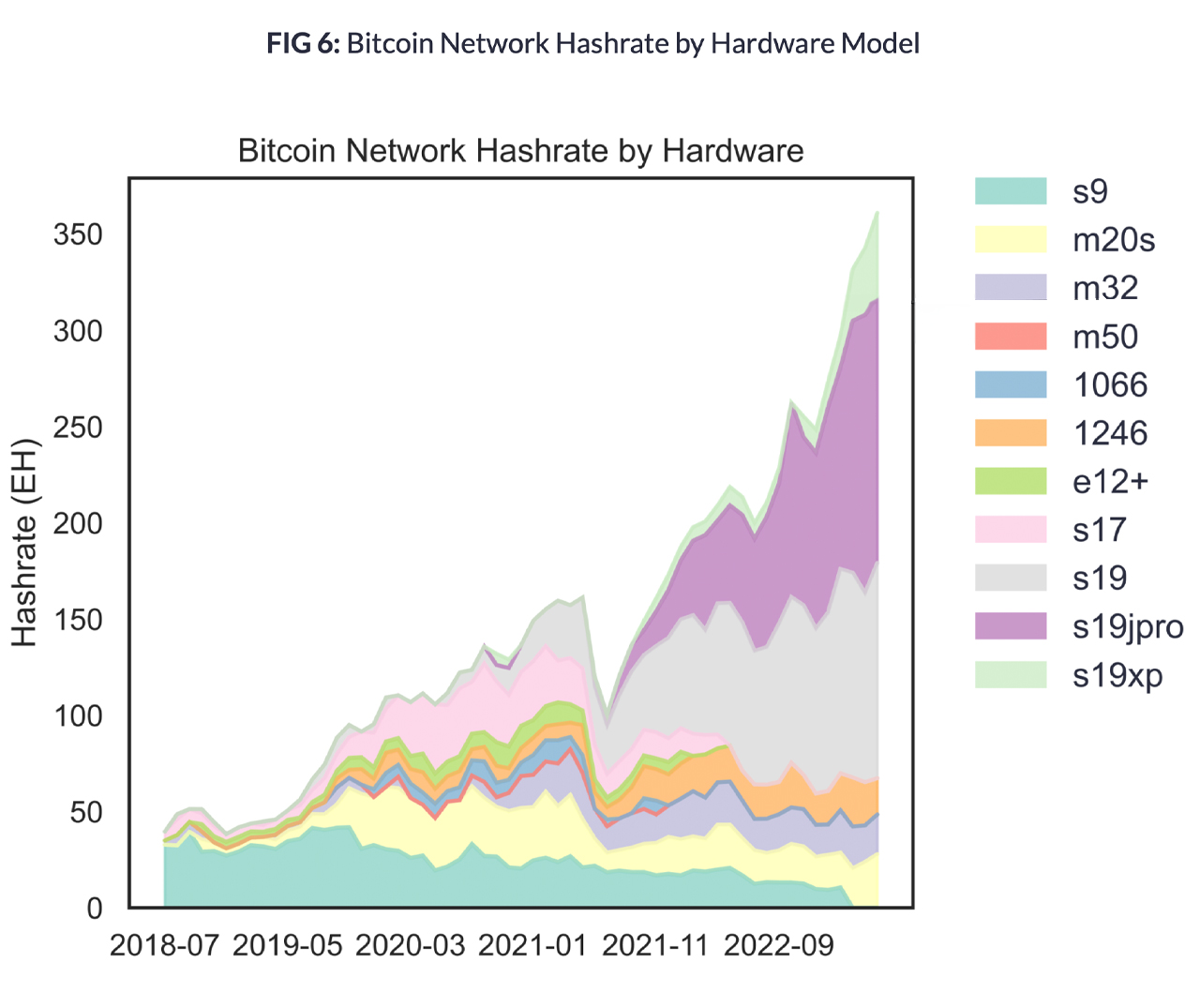New Study Highlights Bitmain’s S19 Mining Rigs Dominate Bitcoin Network’s Hashrate

Coin Metrics researchers published a groundbreaking study on June 13, unveiling an innovative nonce analysis methodology for bitcoin mining. This research enables experts to dissect and identify the specific mining rigs responsible for contributing hashrate to the network, while also evaluating the energy consumption and effectiveness of these machines. Intriguingly, the data reveals that Bitmain has exerted its dominance over the industry for an extended period, with three primary Antminer models now commanding the majority of today’s hashrate.
Groundbreaking Methodology Shows Researchers Can Dissect and Identify Miner Type, Energy Usage, E-Waste, and Efficiency
Karim Helmy, a researcher at Coin Metrics, revealed a new mining study, titled “The Signal & The Nonce,” that takes a fresh approach to exploring the hashpower of the Bitcoin network. Introducing an innovative methodology, the study utilizes nonce patterns to unveil the market share held by each significant application-specific integrated circuit (ASIC) mining rig that drives the network’s operations.

To decipher the data, Helmy acquired or leased a diverse range of ASICs that were the subject of the research. In order to gather insights, he established a proxy pool utilizing Luxor’s relay system. This relay intercepted and meticulously recorded a substantial volume of nonces generated by each ASIC device. Subsequently, the collected data was encoded and transformed into various formats, enabling the identification of patterns with enhanced clarity like never before.

A few notable points emerge from the data, including “Bitmain’s sustained dominance in the hardware market,” as outlined in the research. Moreover, it is noteworthy that Bitmain’s 2016 Antminer S9 has displayed “surprising resilience,” as these older miners have recently fallen below the threshold of detectability. Presently, Bitmain’s S19j stands as the most dominant ASIC, with the machines generating over 34% of the total hashrate. When considering the combined contributions of the S19 and S19 XP units, they account for nearly 42% of the hashrate.
Although the growth rate of the S19 XP has risen, according to Coin Metrics, Microbt’s Whatsminer M50s ASIC machines are now undetectable. Furthermore, Coin Metrics uses these statistics to evaluate the overall efficiency of the hardware utilized in the network. This information allows miners to accurately evaluate their position compared to competitors and determine the ideal timing for hardware upgrades. In a tweet, Helmy stated, “The current network composition is staggeringly efficient.”
The report also assessed Bitcoin’s energy consumption and compared it to the electricity consumption index developed by Cambridge University’s Centre for Alternative Finance and Digiconomist. According to Coin Metrics’ study, the network utilized fewer gigawatts of power in contrast to the indexes released by these two entities. “This newer methodology has several advantages over the existing body of research,” the researchers opine. “We estimate the network’s power draw at roughly 13.4 GW, or about 16% less than Cambridge’s estimate of 15.9 GW for the month of May 2023.”
What are your thoughts about Coin Metrics’ latest study and the dominance of Bitmain’s S19 machines today? Share your thoughts and opinions about this subject in the comments section below.

Comments are closed.